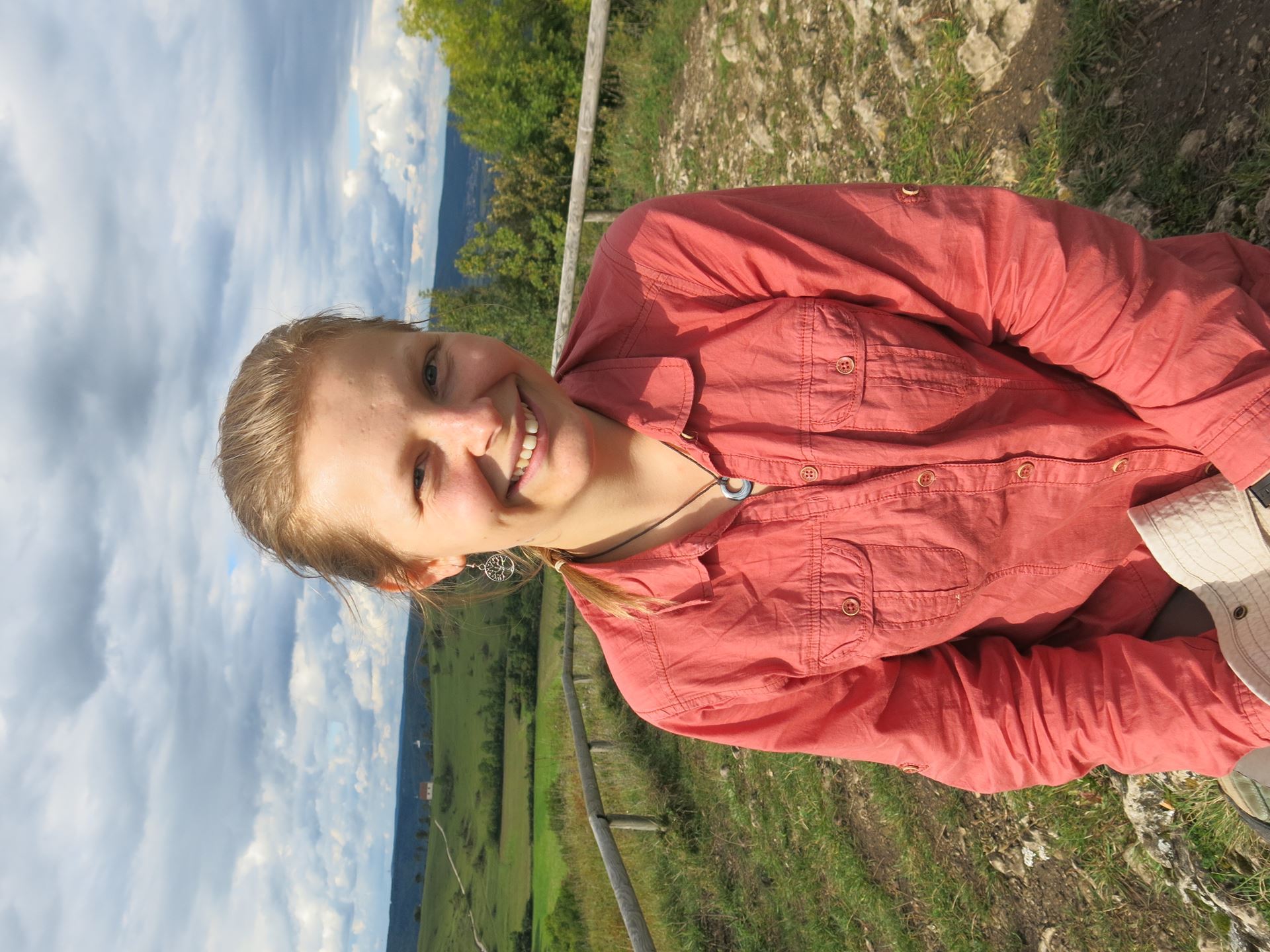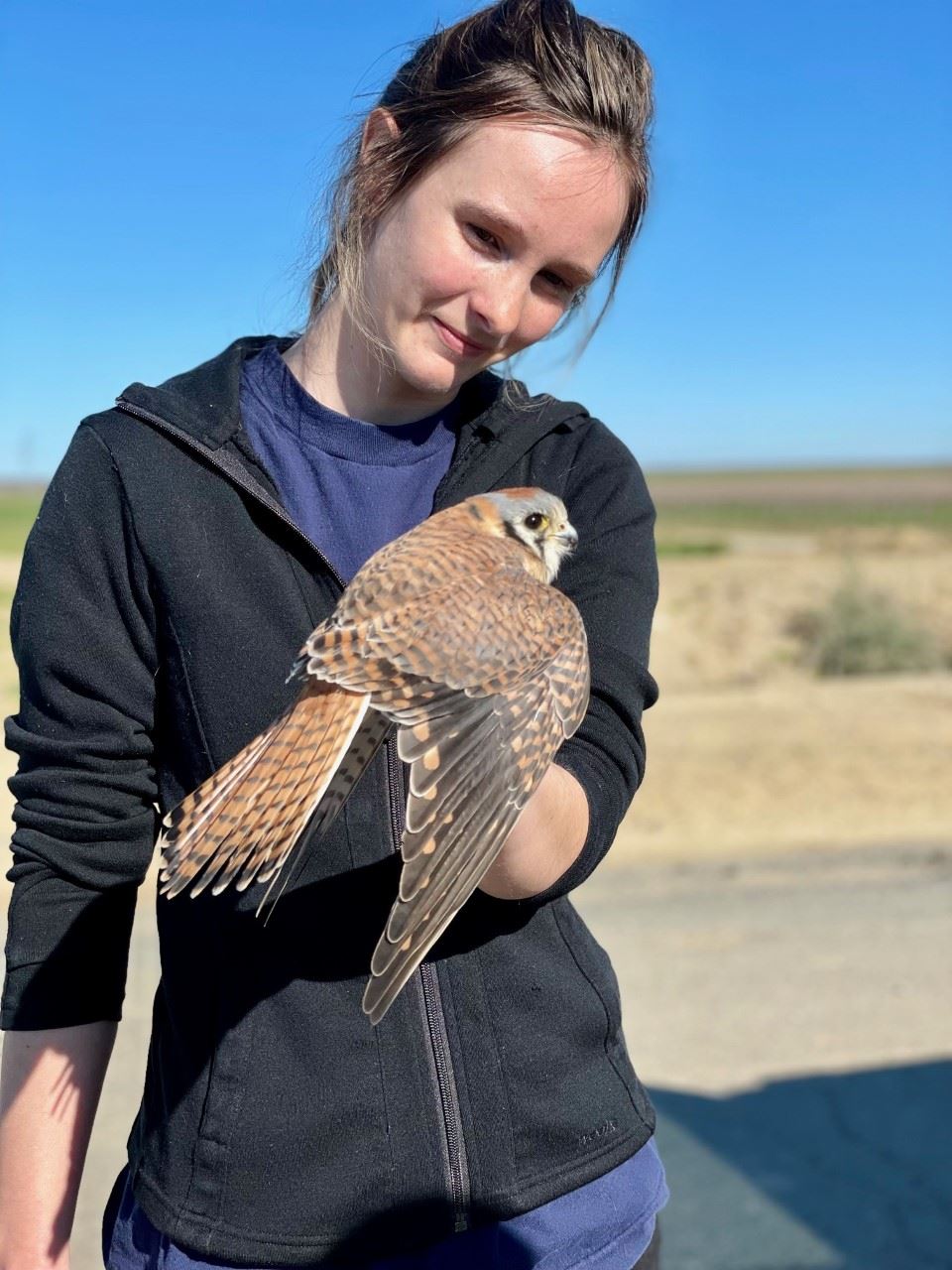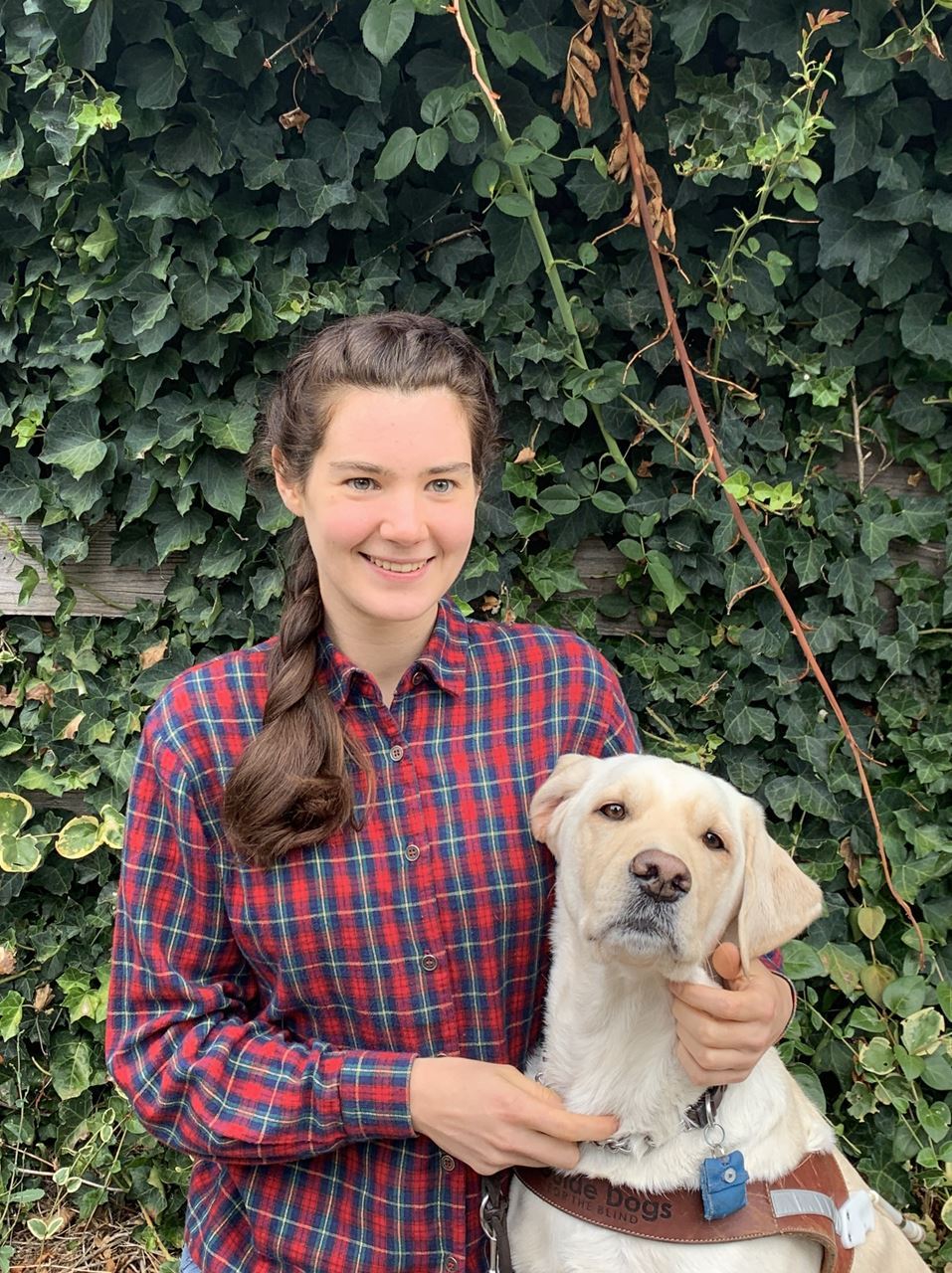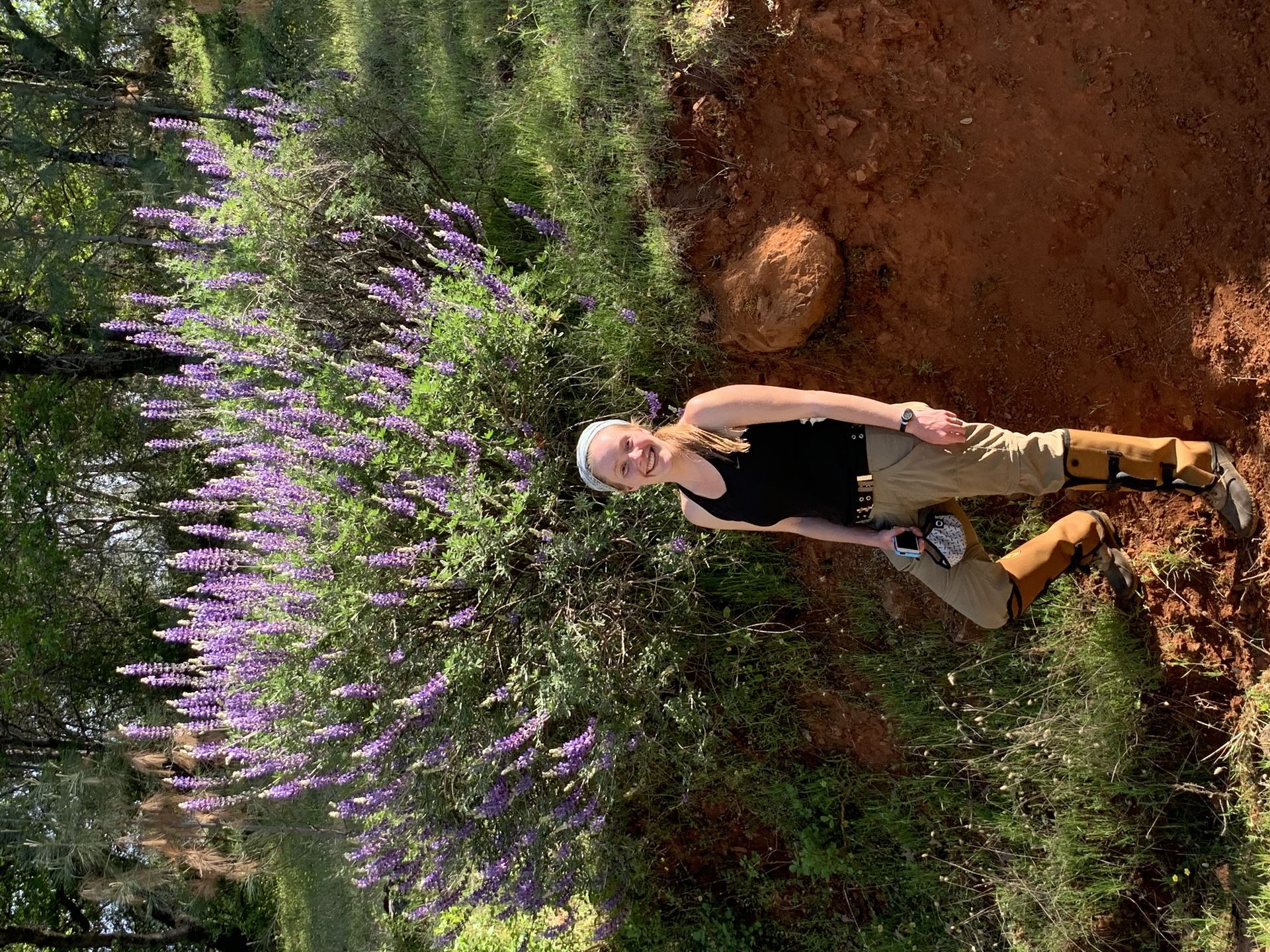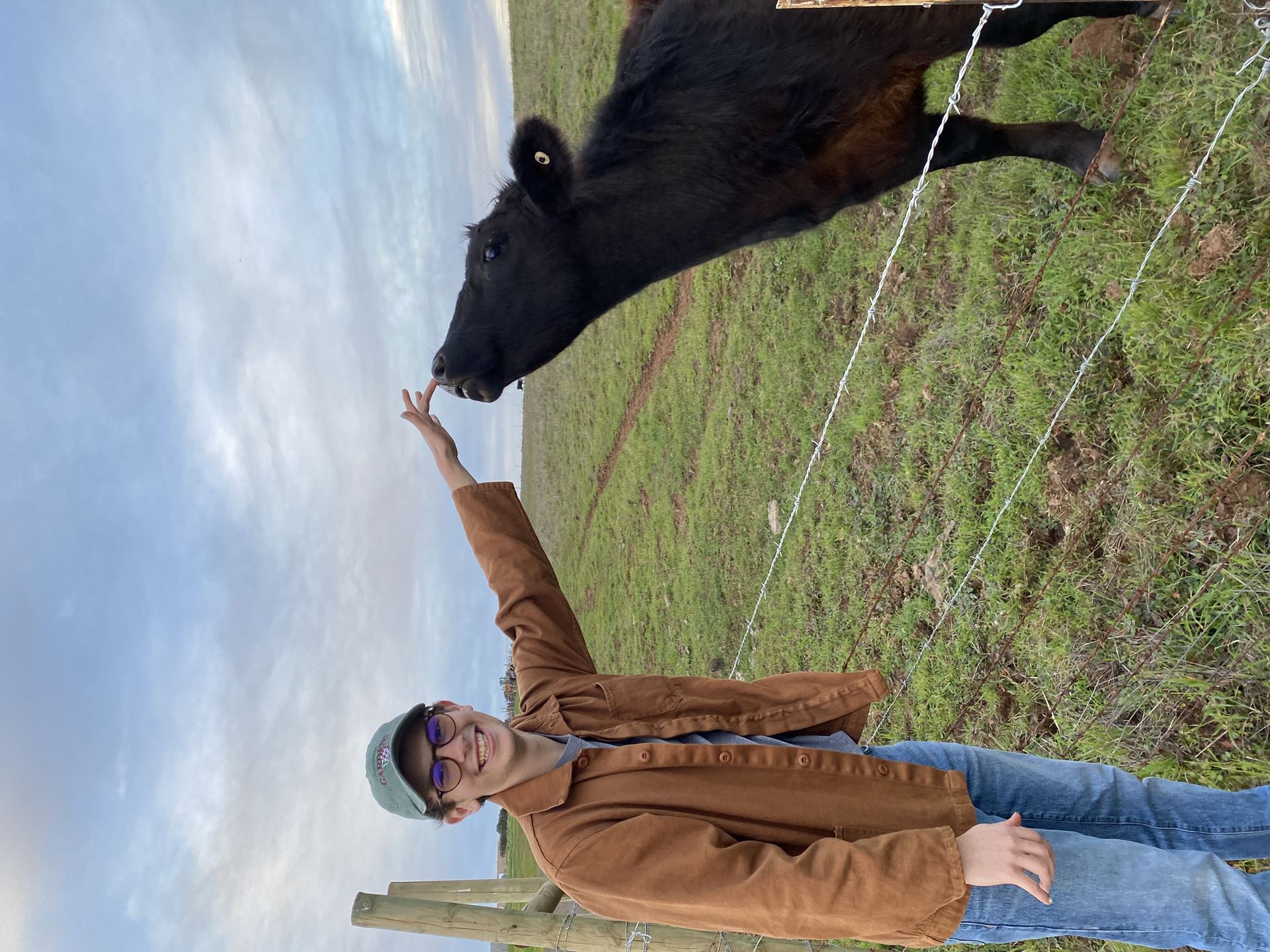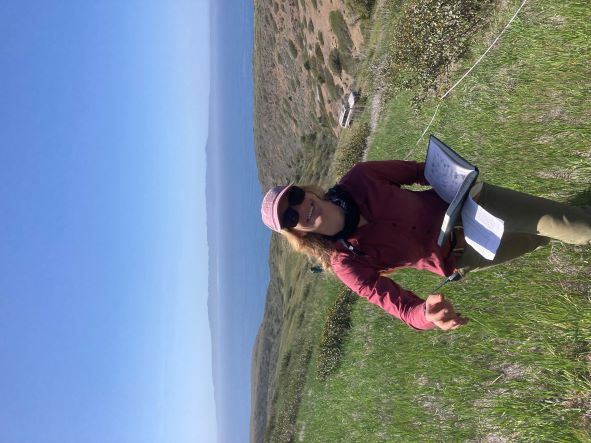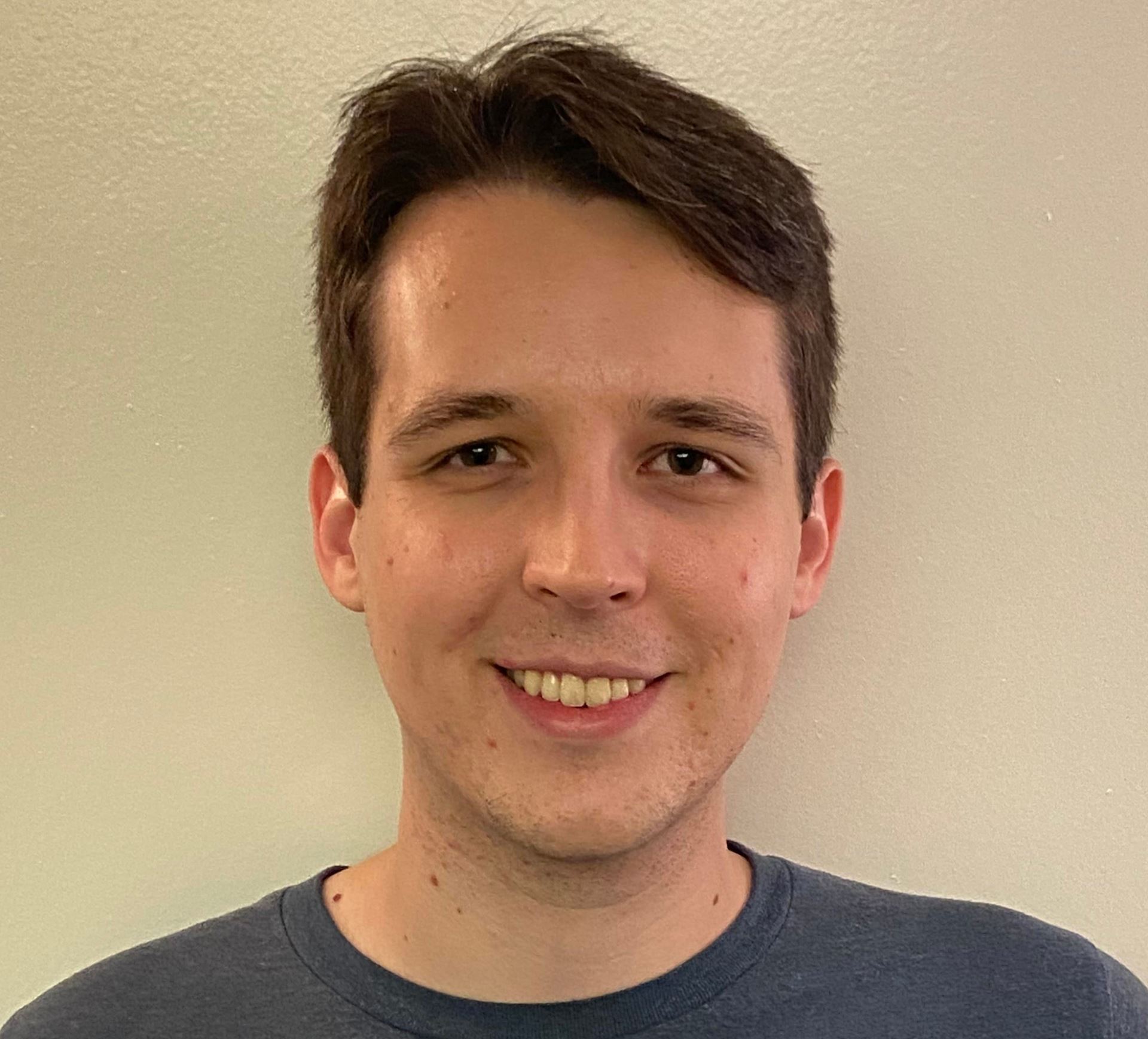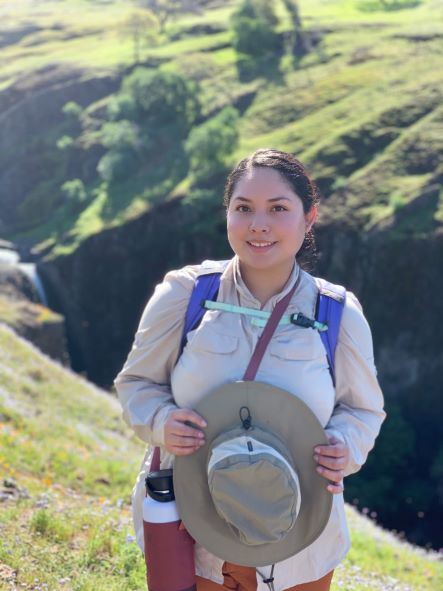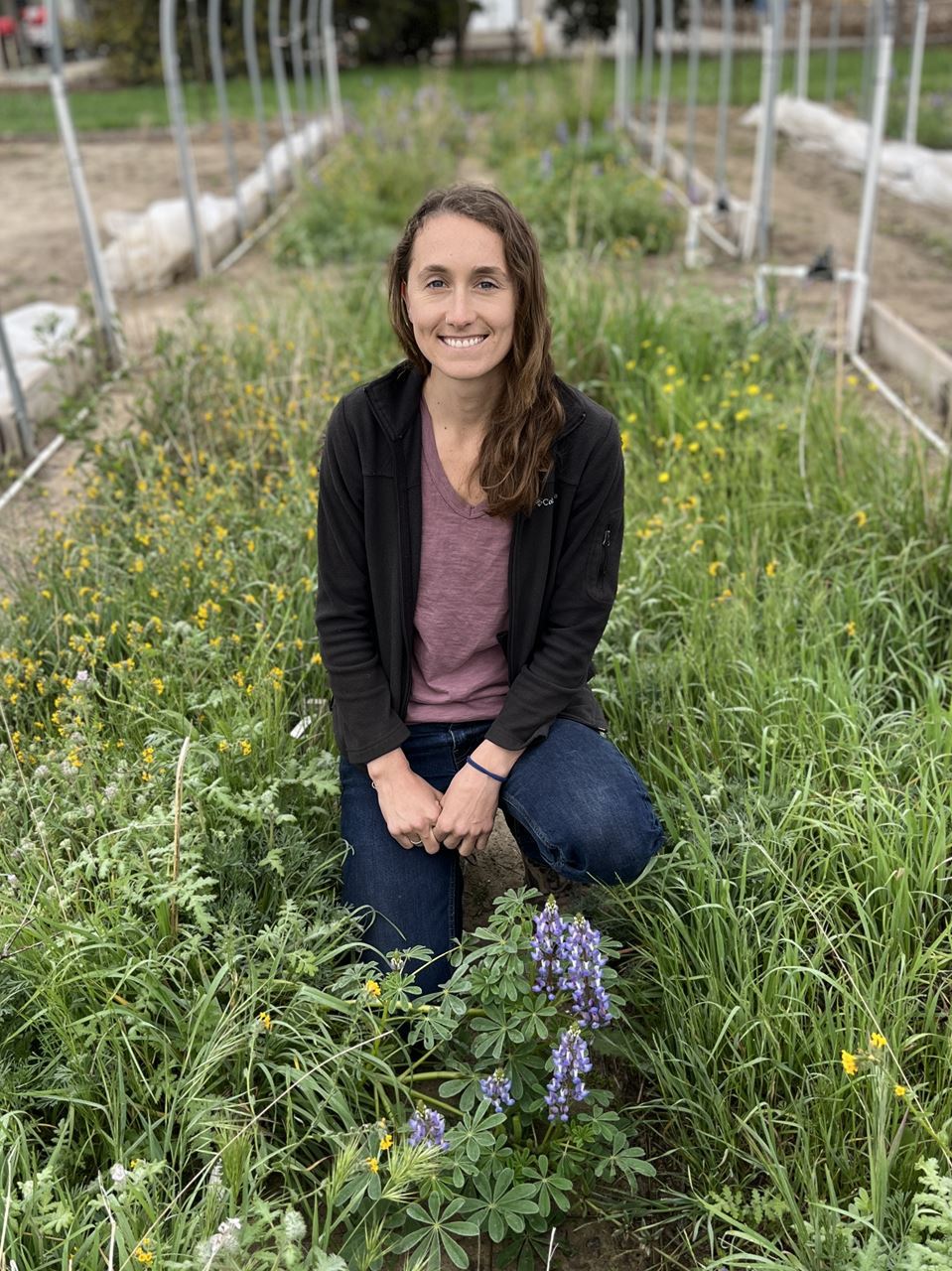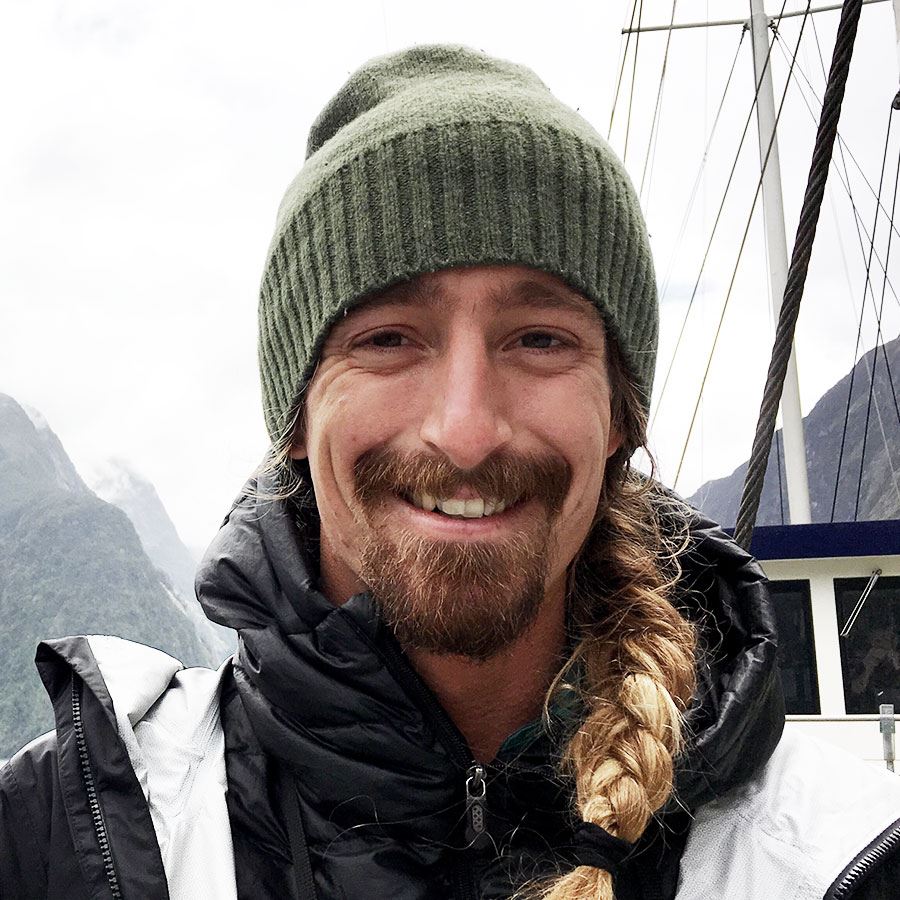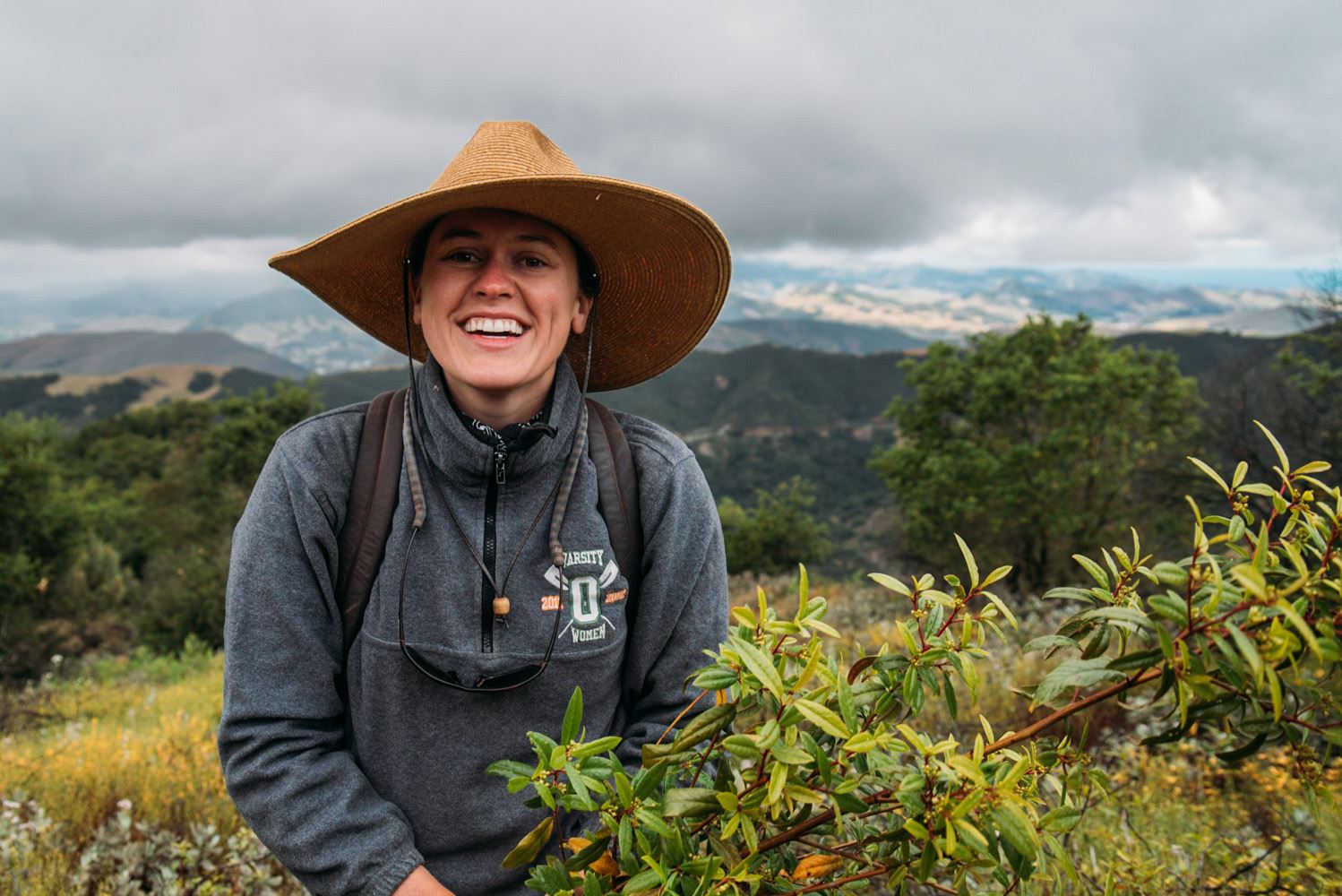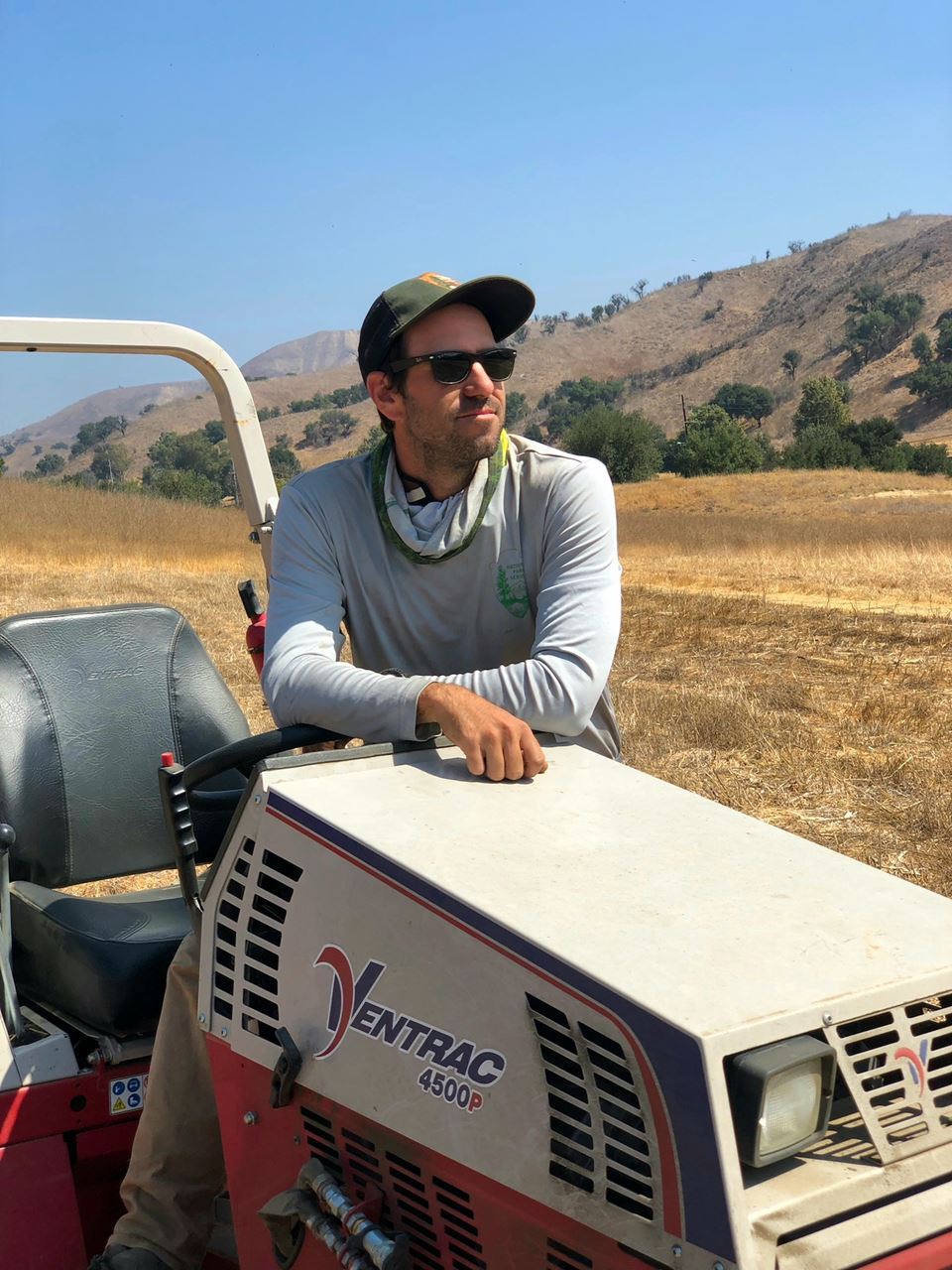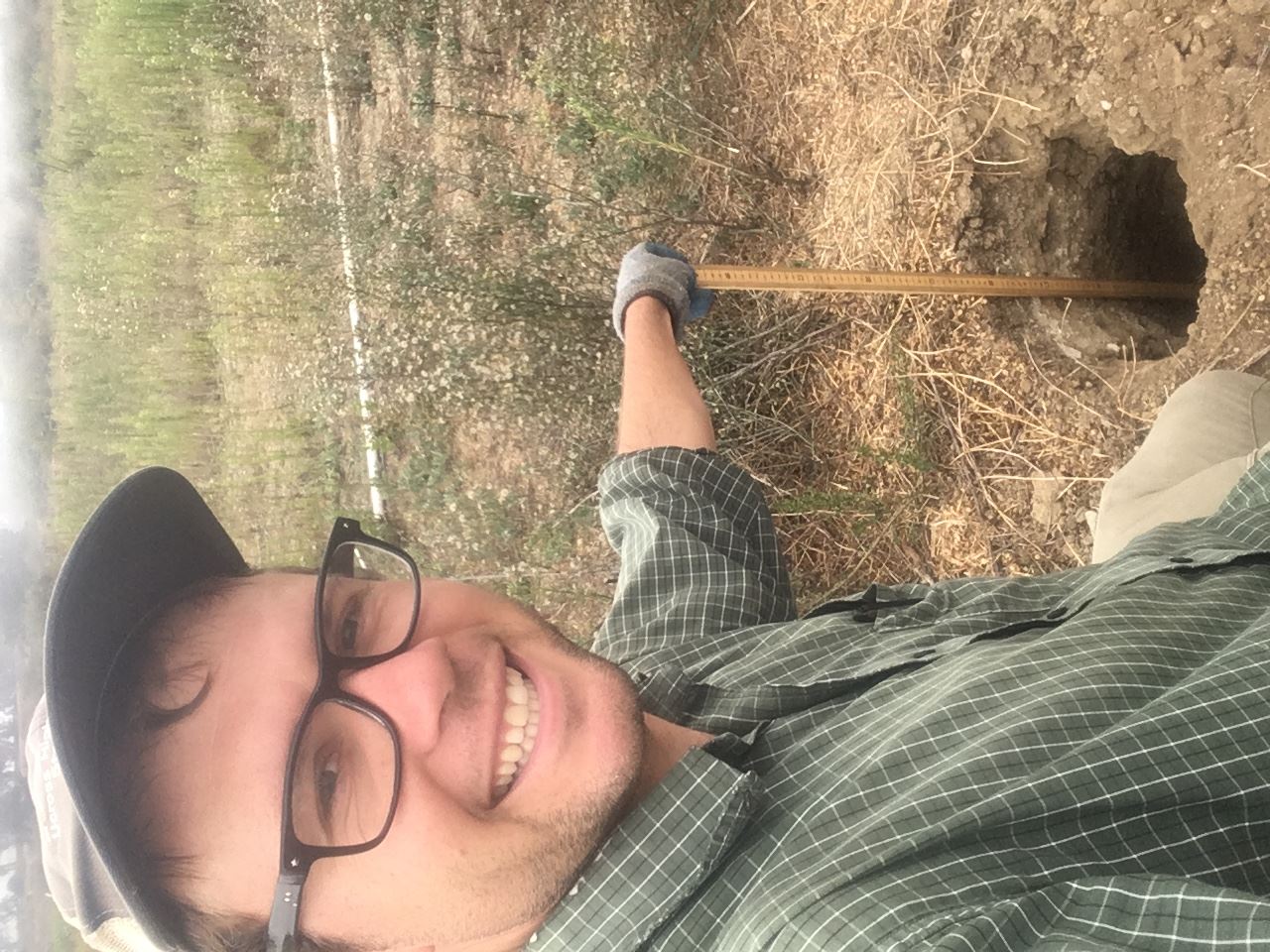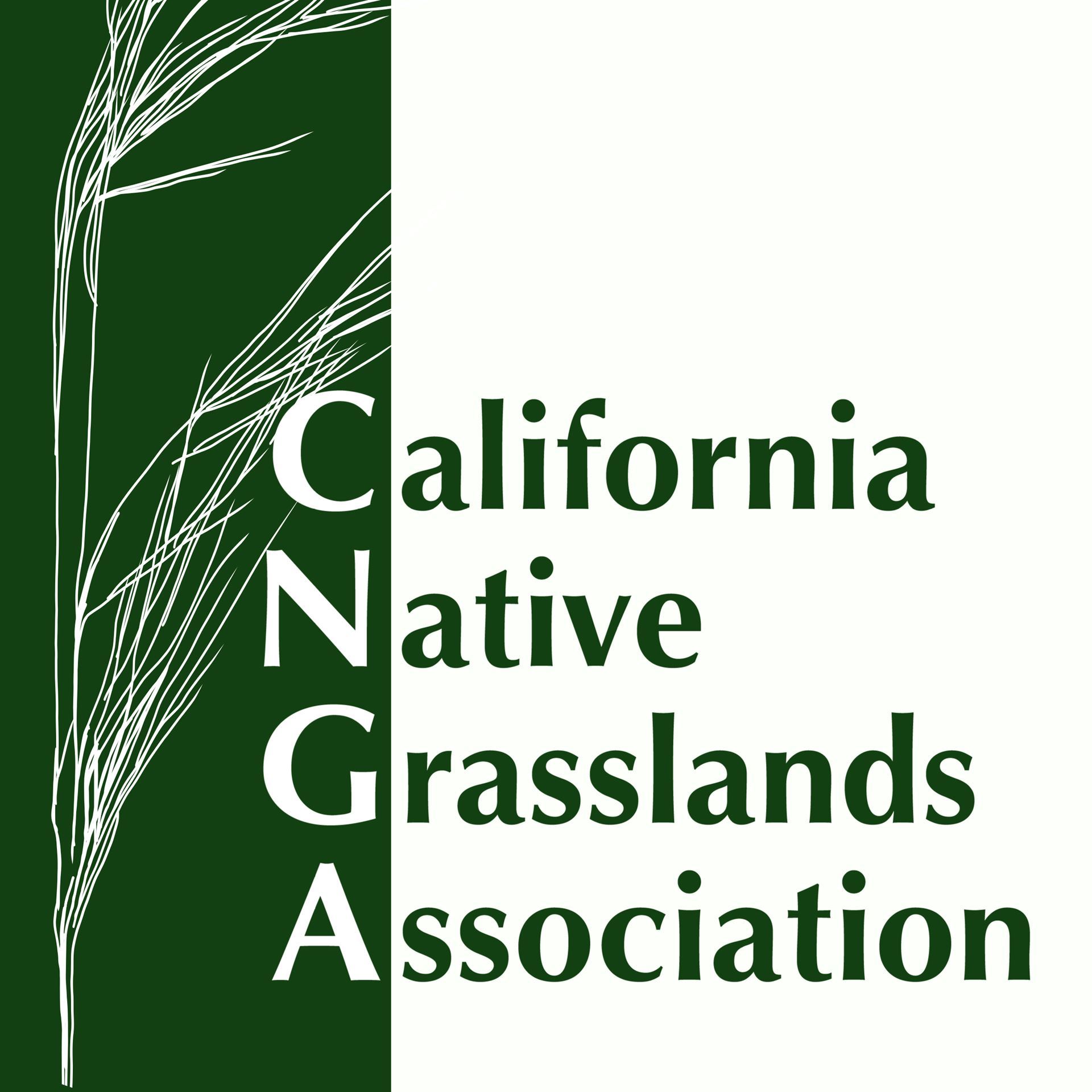
The Only Organization Working Exclusively to Conserve and Restore
California's Native Grasslands
Grassland Research Awards for Student Scholarship (GRASS)
Announcing the Class of 2022
Support the Next Generation of Grassland Researchers |
Congratulations to our 2022 Student Research Award RecipientsHere they are (in alphabetical order): |
Taylor Fay Akers, 2022 GRASS Recipient CSU Sacramento Project Title: How do blue oak-mycorrhizal communities respond to seasonally applied low-severity prescribed fire? Read more about TaylorHello, my name is Taylor, and I am currently pursuing an MS in Ecology, Evolution and Conservation Biology at CSU Sacramento. California Native Americans seasonally applied low-severity fire across many habitats as a land-management technique. I am planning a thesis research project to investigate the response of symbiotic soil fungi to this traditional fire regime. I hope to demonstrate how intentional fire can promote native grass communities in an oak savannah and to highlight the importance of Traditional Ecological Knowledge in our modern land-management practices. In the future, I hope to pursue a PhD and develop a larger-scale research project by including further understanding of natural resource management, fire ecology and ethnobiology. |
| Mary Badger, 2022 GRASS Recipient UC Davis Project Title: Investigating the diet of wintering American kestrels in California's Central ValleyRead more about MaryI am a Masters student in Josh Hull’s lab in the Graduate Group in Ecology at UC Davis. For my master’s research, I am investigating the diet of American Kestrels that utilize the agricultural landscapes of the Central Valley of California as critical wintering grounds. I am interested in genomic techniques that allow for rapid and non-invasive monitoring of wild populations. Other research experience I have includes using the CO1 gene to track the spread of the non-native European green crab in Maine, using genomic techniques to investigate the spatial distribution of marine ciliates in tide pools and using genetic parentage to manage the endangered delta smelt. I am thrilled to using environmental DNA and DNA metabarcoding to further our understanding of the American kestrel, a species integral to the grassland ecosystem. . |
Katherine Brafford, 2022 GRASS Recipient UC Davis Project Title: Rapid evolution of native and non-native grassland species to changes in water availability Read more about KatherineI am a second-year PhD student in Dr. Jen Funk's lab in the Ecology Graduate Group at UC Davis. I am broadly interested in how plant individuals and populations respond to their environment. Currently, I am evaluating a diverse group of thirteen California grassland species for potential adaptive changes after they have had six years of exposure to altered water conditions.
|
Carmen (Ebel) Watkins, 2022 GRASS Recipient University of Oregon Project Title: Environmental variability: Risk or reward for species persistence? Read more about CarmenI am a PhD student in Dr. Lauren Hallett's lab at the University of Oregon. My research focuses on how year to year variability in rainfall shapes the diversity of species in California grasslands and how increasing variability with climate change will alter communities. I am passionate about using science to understand the effects of climate change on ecosystems and applying that knowledge to shape our stewardship of the environment we live in. |
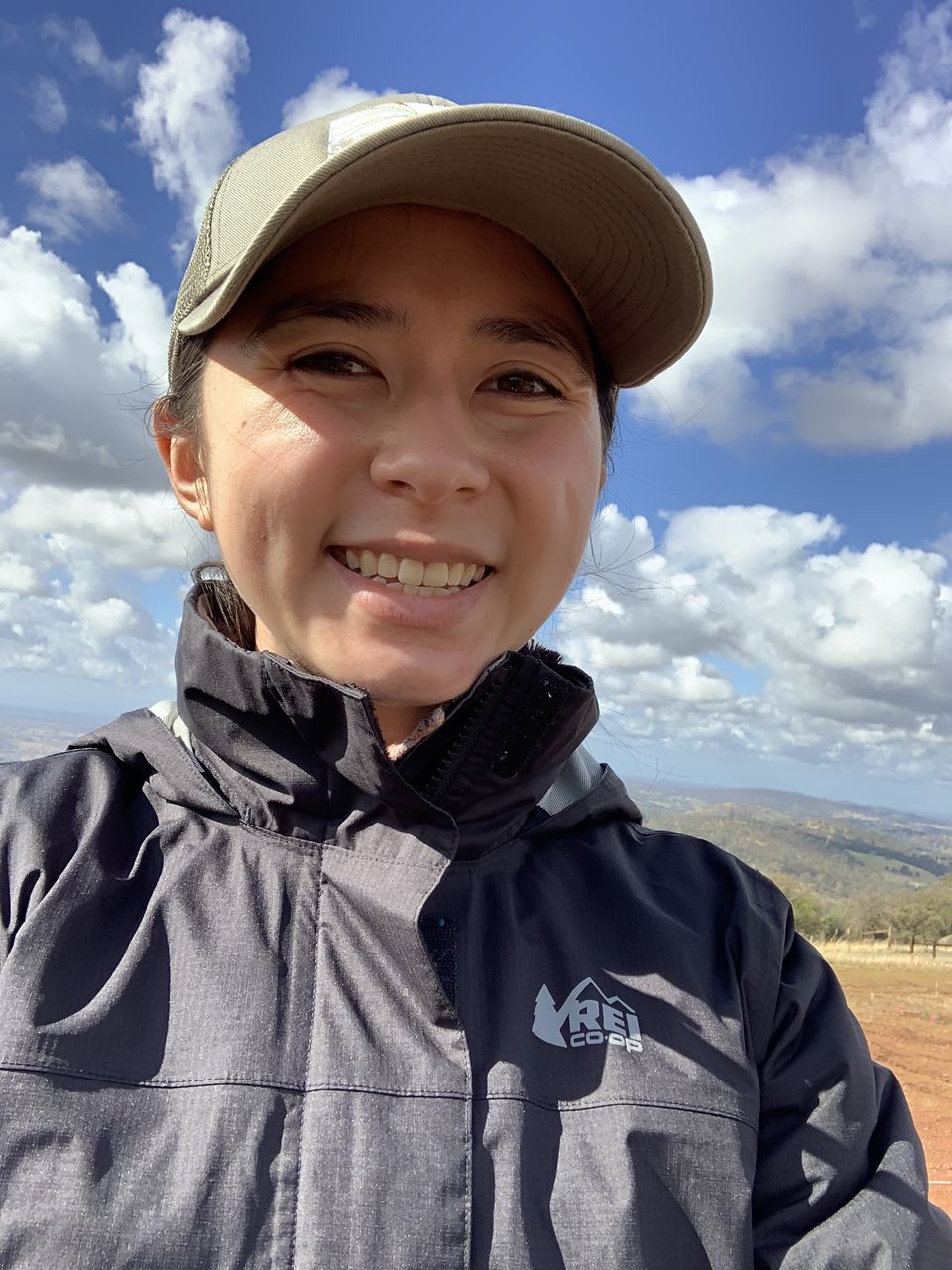 | Natalie Kataoka, 2022 GRASS Recipient University of Oregon Project Title: Nitrogen fixing symbionts as a determinant of plant species coexistence in California grasslands Read more about NatalieI am a 4th year undergraduate Environmental Science student with minors in Biology and Public Policy, Planning and Management. I am conducting my thesis research at the Sierra Foothill Research and Extension Center in Browns Valley, California in partnership with Dr. Lauren Hallett’s lab at the University of Oregon. My goal is to understand how climate change may impact the ability of California native species to compete/coexist with non-native species. In particular, I am studying the importance of nitrogen fixation and microbial community inoculation for Trifolium hirtum (a non-native forb species) and Trifolium willdenovii (California native forb species). Since various non-native species, including T. hirtum, are commonly used as cattle forage and cover crops, I hope to help inform agricultural management practices that incorporate the preservation of native biodiversity. |
| Nicholas Mazzotti, 2022 GRASS Recipient UC Santa Cruz Project Title: Does seeding and planting revegetation techniques result in differentiated seed bank composition in restored California coastal grasslands? Read more about NicholasI am a third year Environmental Studies student with a concentration in conservation and policy at UC Santa Cruz. I am interested in the conservation and restoration of California grassland ecosystems and how current restoration efforts can be adapted to maximize their impacts. I am especially interested in the study of seed banks and how they can serve as an indicator of restoration longevity in addition to altering current restoration practices to evaluate beyond standing vegetation cover. |
| Annie Meeder, 2022 GRASS Recipient CalPoly SLO Project Title: Analysis of alternative post-eradication transitions and spatio-temporal dynamics of vegetation on Santa Cruz Island Read more about AnnieAnnie Meeder is a graduate student in the biology department with an emphasis in ecology at California Polytechnic University San Luis Obispo where she is studying vegetation dynamics on Santa Cruz Island. Annie’s love for ecology and plants began in high school on a trip to Santa Cruz Island doing volunteer research—she now helps lead those trips. In her free time Annie enjoys triathlon, reading, and drawing. Her favorite plant is Lyonothamnus floribundus ssp. asplenifolius, the Santa Cruz Island Ironwood. |
| Sydney Metz, 2022 Grass Recipient Stanford Project Title: Temporal development of serpentine plant-microbial interactions in Plantago erecta Read more about SydneyI am a first-year undergraduate at Stanford University pursuing a BS in biology and a minor in Italian. I began working this past winter in the Fukami Lab under Suzanne Ou in the ecology and evolution department. The project aims to uncover whether soil conditioning via plant-soil feedback affects plant growth. Plantago erecta was grown in three treatments, heterospecific (conditioned by Festuca microstachys), conspecific (conditioned by Plantago erecta), and unconditioned reference soil. The plants were collected via destructive sampling and dehydrated so that I could measure their biomasses. I also extracted the microbial DNA from the soil of each plant’s pot. The project is still ongoing and the extracted soil DNA will be analyzed to collect data on the microbes present in each of the three treatments. This was my first time working in a lab, and it was a wonderful and valuable experience, so I hope to continue pursuing biological research throughout my undergraduate career.
|
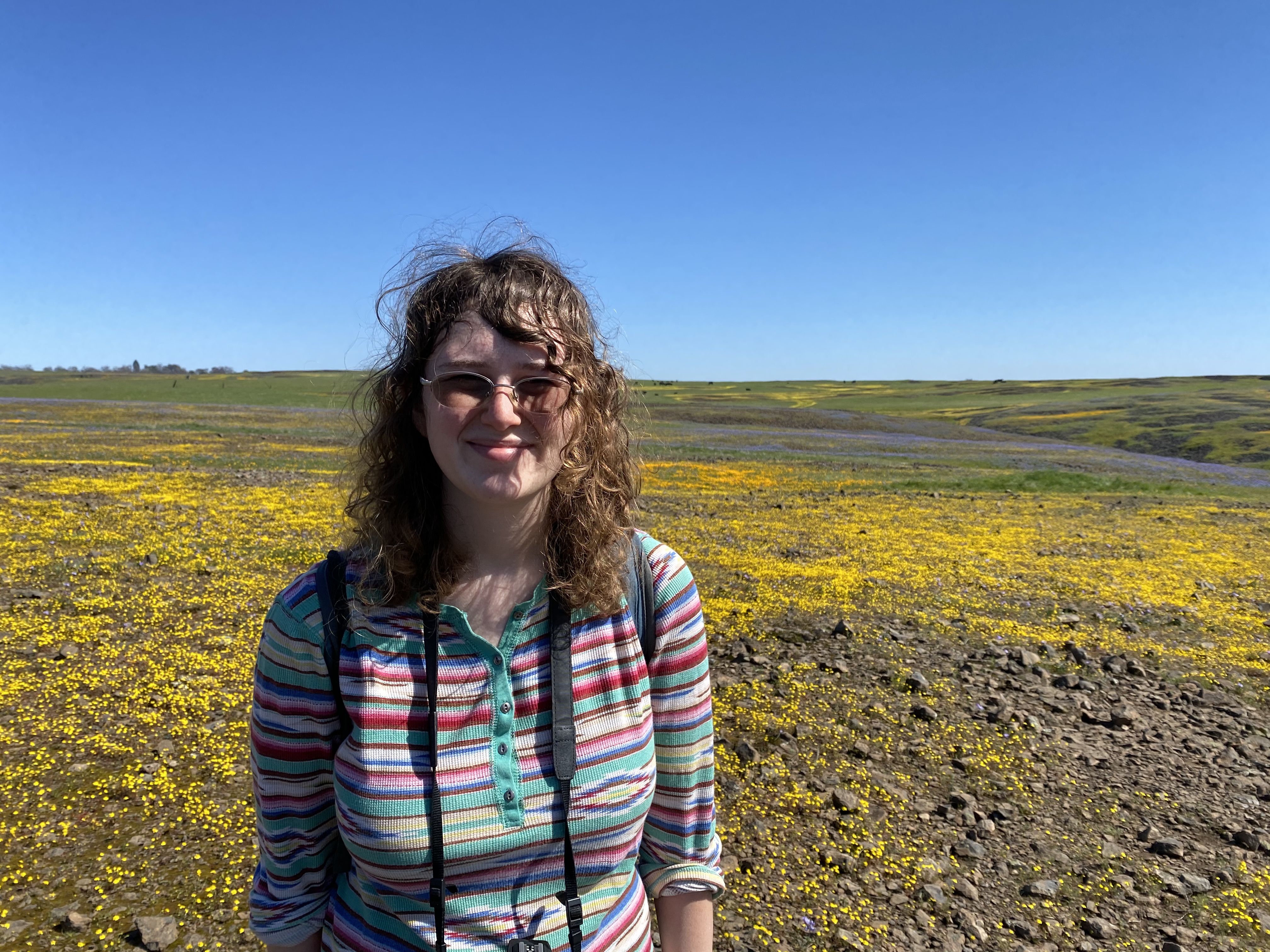 | Rebecca Ann Nelson, 2021 and 2022 GRASS Recipient UC Davis Project Title: The effects of invasion and restoration on pollinator visitation for California native grassland plants Read more about RebeccaI am a second year PhD student in Professor Susan Harrison’s lab in the Graduate Group in Ecology at UC Davis with an emphasis in integrative ecology. I am co-advised by Professor Fernanda Valdovinos. I am studying how invasive species and restoration strategies affect the structure and function of plant-pollinator mutualisms in California grasslands. My project examines the extent to which hairy vetch (Vicia villosa), an invasive legume, competes with native California wildflowers for pollinators. Through this research, I aim to inform the restoration of plant-pollinator interactions in northern California grasslands. I am broadly interested in researching what strategies are effective for restoring grassland plant-insect interactions in the context of anthropogenic global change. I hope to foster partnerships between the applied and academic spheres of restoration ecology. I enjoy birding, nature photography, and creative writing. |
| Spencer Peterman, 2022 GRASS Recipient UC Riverside Project title: Microbial mediation of native legume diversity at Tejon Ranch Read more about SpencerI'm a first year PhD student studying plant-microbe interactions at UC Riverside. My research focuses on the ecology and evolution of specialization within the legume-rhizobia symbiosis. I'm planning to investigate the role that rhizobia play in shaping legume communities in California grasslands. I am also interested in exploring the use of microbes in restoration and assisted migration. |
| Jasmine Rios, 2022 GRASS Recipient Sacramento State University Project Title: Integrated pest management (IPM) approaches to control invasive plant species in CA vernal pools Read more about JasmineI am a first year M.S. student at Sacramento State University, researching invasive plant management to promote and enhance vernal pool-grassland systems. I am interested in evaluating the effects of combined integrated pest management (IPM) approaches to reduce invasive plant cover in preparation for habitat restoration and land management plan efforts. I fell in love with ecology after taking an ecological restoration course as an undergraduate at UCSB. Since then, I interned with the National Park Service conducting vegetation surveys, monitoring native and invasive plant cover, habitat restoration, and working with the native plant nursery. I now work for the CA Dept. of Fish and Wildlife in the IPM program, which monitors and manages IPM approaches used to control invasive plant species in state managed ecological reserves and wildlife areas. My goal is to develop effective land management strategies for conservation and habitat restoration across various natural landscapes. |
| Laurel Sebastian, 2022 GRASS Recipient UC Davis Project Title: Tracking tradeoffs and synergies among ecosystem services in three grassland restoration designs Read more about LaurelI’m a first year MS student studying restoration ecology in the Graduate Group in Ecology at UC Davis. I hope to identify plant communities and restoration strategies that support ecosystem functions in my home state of California. My thesis research studies the effects of four different grassland communities on soil organic carbon sequestration. Specifically, I’m interested in whether plant traits or species that increase soil carbon counteract or synergize with other ecosystem services. I spent the last five years working in botanical field research and environmental education, and hope to work directly in land management and restoration after graduation. |
| Isaiah Thalmayer, 2022 GRASS Recipient UC Davis Project Title: Inoculant-supported restoration: A new practice with promising potential Read more about IsaiahAs a Senior Project Manager at Point Blue my work focuses on catalyzing restoration projects throughout the Bay Area, seeding collaboration and cultivating partnerships. I lead the development of strategies and tools for climate smart restoration in riparian and salt marsh transition zone ecosystems. I work closely with Resource Conservation Districts, Land Trusts, local schools, private landowners and other partners to design and implement innovative projects that restore habitat, sequester carbon, and provide ecosystem services. As a member of the STRAW team since 2011 I’ve designed and implemented rural and urban restoration projects throughout central California, including 3.5 miles of stream at Tolay Lake Regional Park – one of the largest restoration efforts underway in Sonoma County. Two current efforts include designing more than 10 restoration projects on Carbon Farms in Marin County, and experimental field testing of ectomycorrhizal inoculum to improve plant survival and restoration success in Sonoma County. I grew up in the Siskiyou Mountains of southern Oregon and earned my B.S. at Warren Wilson College, a work college in Asheville, North Carolina. I’m currently a graduate student in the Eviner Lab at UC Davis where I study how the ectomycorrhizal relationships of California oaks can help improve restoration success. When I’m not at school or at work you might find me in the surf or hiking with my dog. |
| Brooke Wainwright, 2022 GRASS Recipient UC Davis Project Title: Proposing a novel drought-response trait framework for California grasslands and beyond Read more about BrookeI am a first year PhD student in the Graduate Group in Ecology at UC Davis, advised by Jennifer Funk and Valerie Eviner. I am passionate about the diversity within and among California plant communities, how those types of diversity are affected by global change factors and human activity, and how they affect ecosystem health. I received my masters in Biology from the University of New Mexico in 2021, investigating the ecotonal recruitment dynamics of grassland foundation species under novel climate regimes. Currently, I am pursuing projects related belowground diversity dynamics (e.g., seed banks) under drought conditions in Northern California as well as a large-scale project examining the functional traits related to drought coping strategies of California grassland species, with the intention of creating a novel functional trait framework that helps land managers restore ecosystem functioning and prepare for the future. |
| Matthew Wells, 2022 GRASS Recipient CSU Dominguez Hills Project Title: Can targeted mowing promote native species recovery in invaded native plant communities Read more about MatthewI am a first year Master of Biology student at California State University Dominguez hills. I am studying how to better manage invasive grasslands through timed mowing. Using mowing as a tool to reduce invasive grasslands cover, we hope to encourage native plant species recolonization and restoration of highly degraded invasive grasslands throughout the Santa Monica Mountains National Recreation Area. I am currently working for the Santa Monica Mountains Foundation as a lead restoration technician helping to restore native plant communities throughout the recreation area that were devastated after the Woolsey fire. During my time in the Santa Monica Mountains, I have also done extensive invasive species plant management in the post Woolsey fire. I have collected data for long term vegetation monitoring. The aim of my study and my passion is for restoring native plant communities that have been severely degraded by human impact. |
Jacob Weverka, 2022 GRASS Recipient UC Santa Barbara Project Title: Investigating grazing effects on belowground productivity and carbon storage under native perennial grasses and exotic annual grasses Read more about JacobI am a third-year Ph.D. student at UC Santa Barbara, studying soil organic carbon. I'm interested in understanding how plant contributions to soil carbon change under varying management regimes in California grasslands. I hope that my research can inform ecosystem management for both soil health and climate mitigation. Before I was a graduate student I worked for a number of government and non-profit organizations in California, including the National Park Service and Point Blue Conservation Science. My favorite native grass is Deschampsia danthonoides. |
Invest in the Next Generation of Grassland Managers by Supporting Student Researchers
Help Us Encourage and Support the Next Generation of Grassland Researchers |
